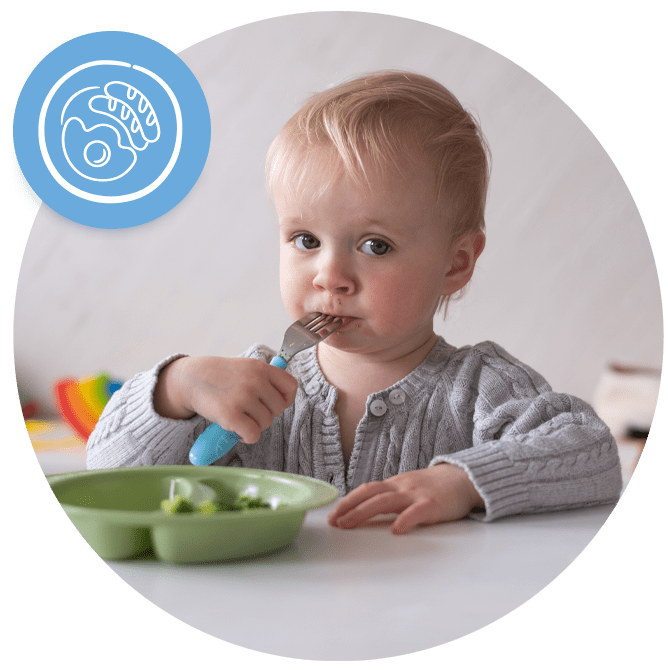Picky Eating
at CST Academy
Brighter Mealtimes. Better Nutrition. Happier Families.

What Is Feeding Therapy for Picky Eating?
Picky eating becomes a concern when it affects your child’s nutrition, growth, or ability to participate in daily life. At CST Academy, our therapists go beyond typical food preferences to identify the root causes—whether sensory sensitivities, oral motor challenges, or anxiety—and create a personalized plan to support more positive mealtime experiences.
We use evidence-based strategies, playful engagement, and gentle exposure to help children build comfort and confidence with a variety of foods, textures, and routines.

Why Choose CST Academy for Picky Eating Support?
We also work closely with families, providing take-home tools and coaching so that what works in therapy works at your table, too.
The CST Academy Difference
Helping Your Child Overcome Picky Eating

Tolerating and Exploring New Foods
Trying New Textures and Tastes


Improving Oral Motor Skills
Reducing Anxiety Around Mealtimes


Expanding Food Variety and Nutritional Intake
Establishing Mealtime Routines and Behaviors

Start Your Journey with CST Academy Today
"*" indicates required fields
When to Seek Picky Eating Support
Limited Food Variety
Extreme Reactions to Food Textures
Avoidance of Entire Food Groups
Long or Stressful Mealtimes
Difficulty Sitting at the Table
Concerns About Growth or Weight Gain
A Place Where Mealtimes Can Be Joyful
We believe that mealtimes should be moments of connection, not conflict. That’s why we create a pressure-free environment where progress happens through curiosity, play, and celebration. Whether it’s touching a new food for the first time or taking a brave bite, every success matters—and we’re here to cheer your child on every step of the way. Therapy at CST Academy is about so much more than food—it’s about confidence, family connection, and finding joy at the table.

Real Families. Real Progress. Real Mealtime Wins.

Feeding Therapy for Picky Eating at CST Academy
Supportive Solutions for a Healthier Relationship with Food
At CST Academy, our Feeding Therapy program is specially designed to help children overcome picky eating through compassionate, individualized support. Whether your child struggles with food variety, texture sensitivity, or mealtime anxiety, our expert therapists use evidence-based strategies to build confidence and comfort around food. With a collaborative, family-centered approach, CST Academy helps make mealtimes more enjoyable—and progress more achievable—for children and parents alike.





